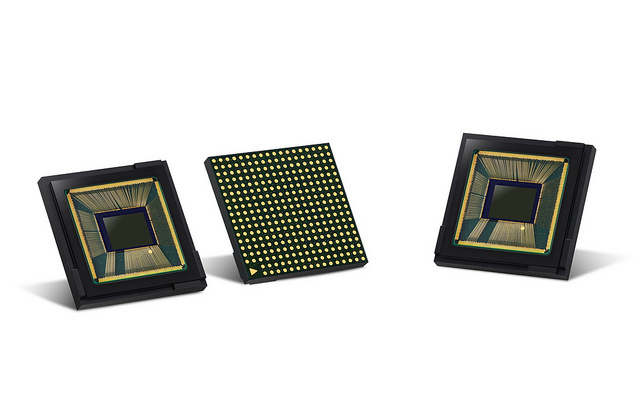BARCELONA, Spain -- As part of its efforts to boost its system chip business, Samsung Electronics on Tuesday promoted its latest system chip products at a private booth at Mobile World Congress 2018.
The world’s top memory chip provider is shifting its focus from the mainstay memory products from non-memory chips that are seeing growing demand in the “fourth industrial revolution” and Internet of Things era.
The MWC, the biggest mobile industry tradeshow, has been considered an optimal opportunity for Samsung’s chipmaker sales and marketing officials to meet with mobile customers from around the world. More than 100,000 industry officials from 203 countries attended the event this year.
At Samsung’s semiconductor booth, the company prepared four separate rooms for memory chips, system LSI chips, display and electro-mechanic products.
In the system LSI chip room, Samsung exhibited the newest products including ISOCELL image sensor and Exynos chips for automobiles as the main products.
A customer from a European mobile device maker said he was amazed by the Samsung image sensor, which is adopted by the tech giant’s smartphone business for the latest flagship Galaxy S9 and S9+.
The ISOCELL image sensor in the dual camera module in the ninth edition of the Galaxy S series supports Super Slow-mo feature by taking 960 frames per second and stores the image data with Samsung’s DRAM integrated with the sensor.
 |
Samsung's newest ISOCELL image sensor, the 3-stack ISOCELL Fast 2L3 with integrated DRAM (Samsung) |
Heads and senior officials from various mobile and chip industries visited the private Samsung booth, including Surendra Nahar, the R&D director at electronic design automation firm Cadence, executives from San Hose-based chip solution provider Cavium and Taipei-based electronics maker ASUS.
As part of efforts to diversify its profit structure heavily relying on memory, Samsung is making large-scale investments in the system chip and found businesses.
Last week, the company broke ground for a cutting-edge Extreme Ultraviolet lithography plant that will be used for foundry products on 7-nanometer process by pouring around $6 billion into it.
Samsung‘s semiconductor chief Kim Ki-nam attended the MWC for the first time as the CEO of the world’s largest chipmaker and visited the booth to meet with key customers.
In a short interview with The Korea Herald, Kim expressed confidence in the foundry business, saying, “We will become a larger foundry player in the global market beyond the current fourth player.”
Samsung was the fourth in the global foundry market with about a 7 percent share as of 2017 after TSMC, GlobalFoundries and UMC, according to US market researcher TrendForce.
By Song Su-hyun (
song@heraldcorp.com)
Korea Herald correspondent





![[Exclusive] Hyundai Mobis eyes closer ties with BYD](http://res.heraldm.com/phpwas/restmb_idxmake.php?idx=644&simg=/content/image/2024/11/25/20241125050044_0.jpg)
![[Herald Review] 'Gangnam B-Side' combines social realism with masterful suspense, performance](http://res.heraldm.com/phpwas/restmb_idxmake.php?idx=644&simg=/content/image/2024/11/25/20241125050072_0.jpg)

